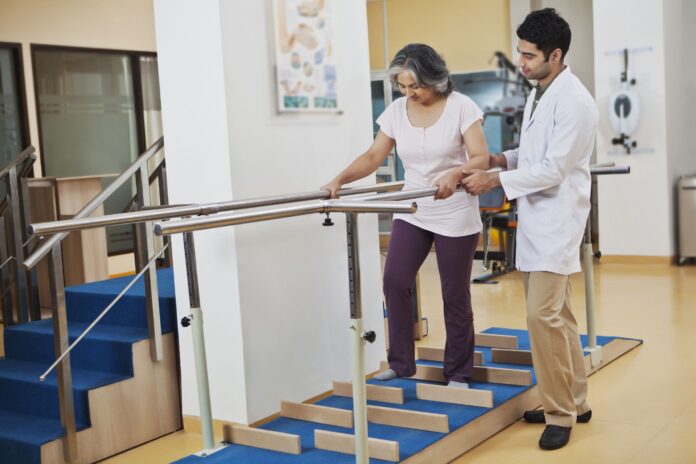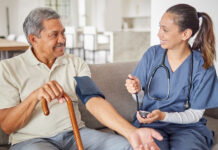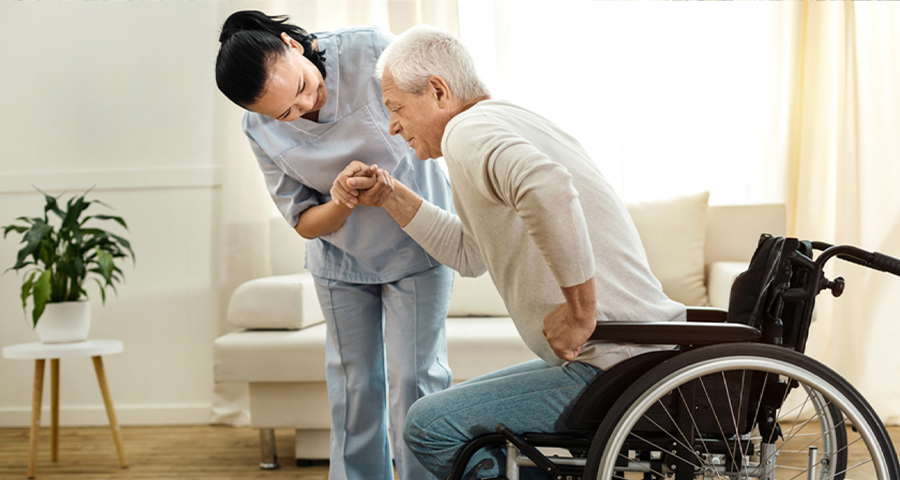According to a study by the World Health Organization (WHO) on senior falls, seniors above 65 years are prone to falls that could lead to serious injuries and even mortality. The fall percentage each year is increasing by 30-35 percent every year. The prevalence of falls in seniors in India is reported to be between 20-50 percent as of 2020. The number of seniors who experience a fall at least once in a year is almost doubling up at 50 percent.
The alarming fact is that falls compete with the chronic conditions that cause mortality. Fall prevention in seniors should deserve all the attention and awareness among the senior community. Stay with us until the end of the blog to know all about impacts of falls in elders, tips to reduce falls, and how simple practices like physiotherapy, senior rehabilitation and vitamin d supplements can cut down the chances of falls in seniors significantly.
What causes falls in seniors?
The cause behind each fall can be different but most of the falls are caused by weakness, poor balance, environmental hazards, visual impairment, and health issues. A fall is a result of multi-factorial etiology as there are more than 200 risk factors identified behind falls in seniors.
Seniors with bone and muscle related conditions such as arthritis, muscle spasms, incontinence, and diabetes are at greater risk for falls. Mental health issues such as lack of attention, focus and even depression can cause a fall.
What is the impact of falls in seniors?
A fall, be it a minor or major, can leave some impact on the senior’s physical and mental health. Minor falls cause increased blood pressure, anxiety, and self-doubt while major falls cause bone fractures. In fact, falls in seniors is the major reason behind almost 20% of hip fracture cases in seniors.
Right after the impact, the senior might experience a mild or major injury that requires immediate treatment or surgery. Apart from visible broken bones and bruises, doctors may conduct thorough physical examinations that include muscle strength, joint motion range, and vision and nervous system assessments to determine the overall impact of a fall.
What are the tips to reduce falls?
Like many health issues a senior might face, falls cannot be predicted but they certainly can be prevented. If you are an older adult, follow these steps to reduce the risk of falls.
- Physical exercise: Lack of strength and poor balance are the major reasons behind falls. With sufficient physical activity, strength training, and balance workout, one can attain physical fitness even in their late 70s or 80s. Take help from a certified physical therapist or a trainer to get a detailed workout plan.
- Nutritious diet: Poor bone strength or muscle mass can lead to physical weakness. Ensure your diet contains all the minerals and nutrients to strengthen your body from inside. Eat dark leafy greens, fresh vegetables, fruits, and lean meat to fulfill the diet needs of your aging body.
- A healthy lifestyle: Stick to healthy habits that include good food, everyday exercise, and deep sleep every night can help you lead a healthy lifestyle. As a senior, it is pivotal to stick to a healthy daily routine to avoid an array of health issues, not just falls.
What are the ways home healthcare can help?
The risk of a fall is everywhere from a weak step to environmental hazard. The trained home care professionals can recognize potential threats of falls around seniors. Here are a few ways home healthcare for seniors can help.
- Help seniors increase their balance and posture: By helping elders in exercising, supporting while getting up or down, adjusting the environment as per the senior’s physical strength, eyesight, and joint motion range, home care providers offer great support in reducing senior falls.
- Support for the recovering individuals: Recovering individuals face an enhanced risk of falls. By supporting recovering seniors in each of their activities, home care providers ensure the senior is in safe hands until they are completely recovered and can do their tasks on their own.
- Physiotherapy services at home: Apart from the personal attendants and nursing care specialists, home care providers offer quality physiotherapy services at home, support for chronic pain in older women and men, physical therapy for chronic back pain. These are highly recommended services for a senior recovering at home.
Falls can lead to injuries which can leave a serious impact on a senior. Try to avoid falls in the first place. Work on balance, strengthen core, manage weight and be aware of the surroundings. The home care providers can help both seniors trying to avoid a fall and those who just failed at it but are trying to recover.













